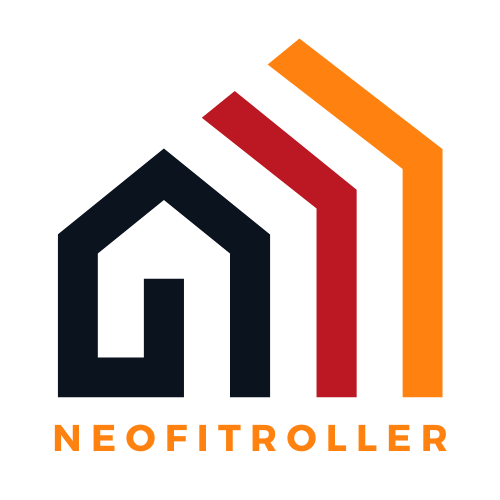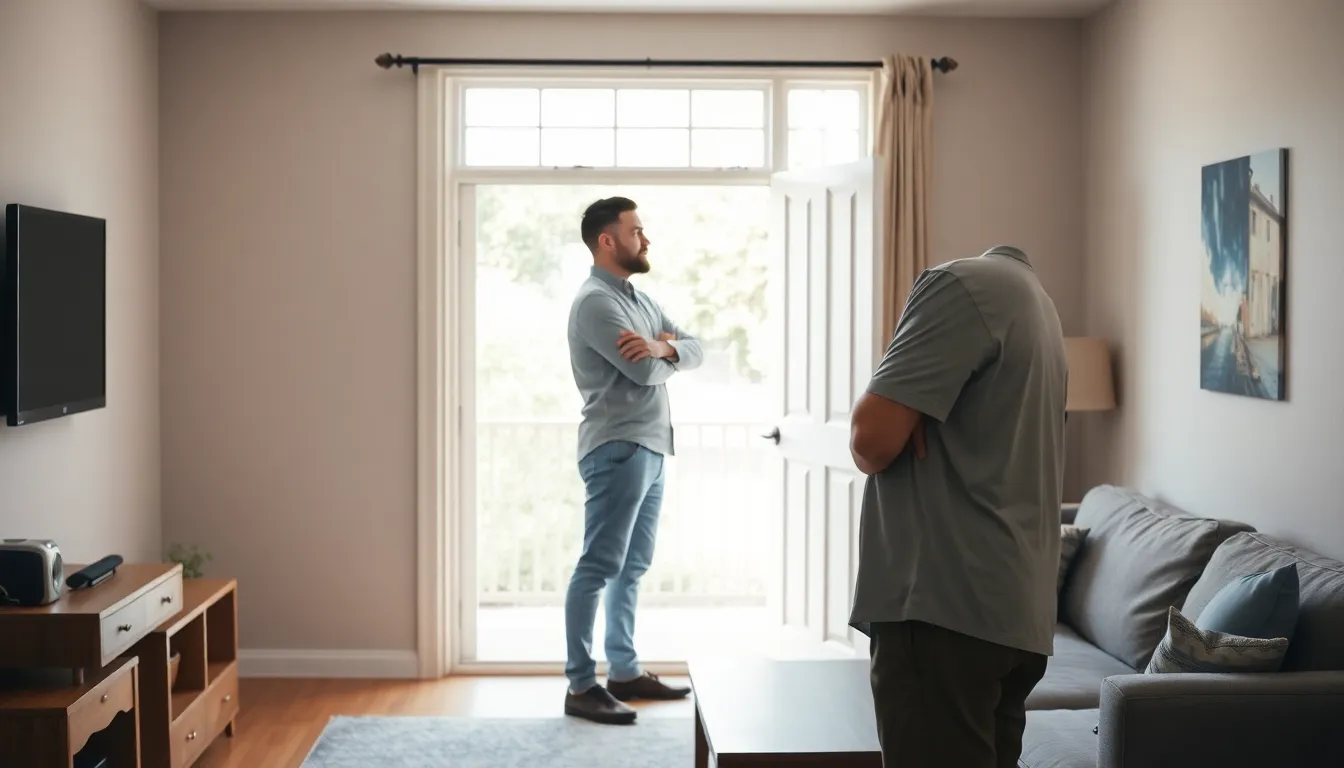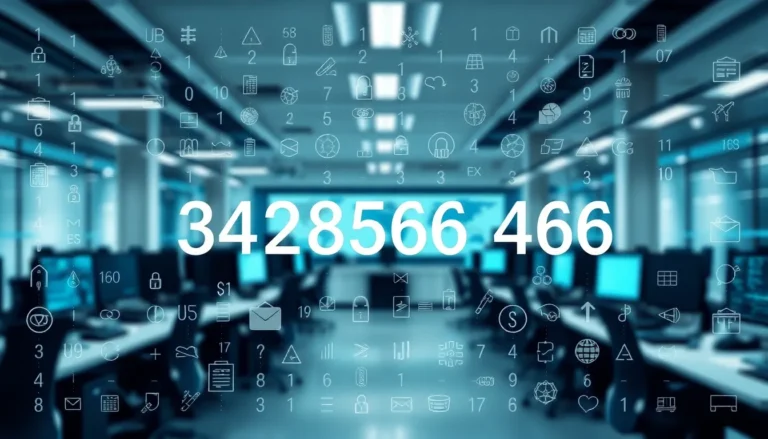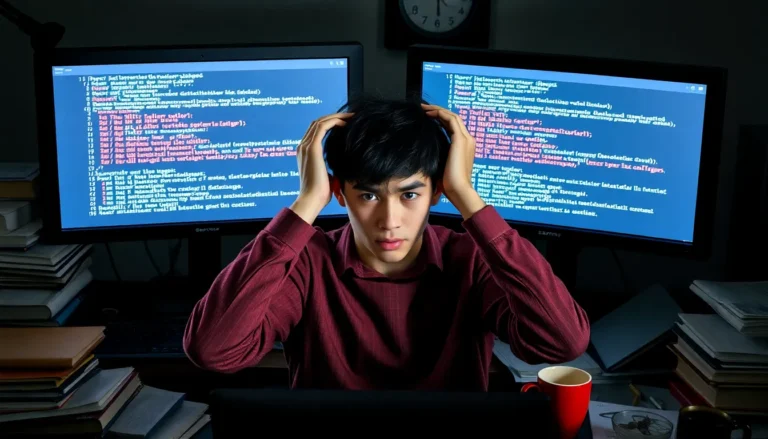Table of Contents
ToggleWhen it comes to landlord inspections, many tenants find themselves in a bit of a pickle. Picture this: you’re lounging in your pajamas, binge-watching your favorite show, when your landlord suddenly wants to pop in and check the place out. Can you say “no thanks”? It’s a common dilemma that raises eyebrows and sparks debates.
Understanding Landlord Inspections
Landlord inspections play a crucial role in maintaining the property. They can, however, cause discomfort for tenants, particularly when the landlord shows up unexpectedly.
Legal Rights as a Tenant
Tenants possess specific legal rights regarding landlord inspections. Most states require landlords to provide reasonable notice before visiting, often 24 to 48 hours. Additionally, tenants have the right to privacy in their residence. In certain situations, such as emergencies, landlords may enter without prior notice. Understanding local laws is essential to navigating these circumstances effectively. So, tenants should consult their rental agreements alongside local regulations to ensure their rights remain protected.
Common Reasons for Inspections
Landlords typically conduct inspections for various reasons. Regular maintenance checks ensure the property remains in good condition. Safety inspections may occur to comply with health codes and regulations. Additionally, landlords may inspect the premises for lease violations, like unauthorized pets or alterations. Tenants should familiarize themselves with these common inspection purposes. Knowing the rationale behind inspections helps alleviate some discomfort associated with the process.
Tenant Responsibilities

Tenants hold specific responsibilities in managing their rental properties effectively. Primarily, maintaining property condition is crucial for tenant rights and obligations.
Maintaining Property Condition
Maintaining the property’s condition involves keeping all areas clean and well-functioning. A tenant must promptly report issues like leaks, pest infestations, and electrical problems. Not addressing these issues may lead to more significant damage and potential penalties. Regular upkeep, including cleaning and preventing wear and tear, falls under tenant responsibilities. They ensure compliance with lease terms by maintaining appliances and fixtures. Proper communication regarding repairs helps landlords make timely interventions. A proactive approach reduces the likelihood of major disputes during inspections.
Providing Access for Inspections
Providing access for inspections signifies a tenant’s adherence to the rental agreement. Tenants typically must allow landlords reasonable entry after receiving proper notice. By doing so, they facilitate necessary maintenance, ensuring a safe living environment. Effective communication about schedule preferences can ease any discomfort during visits. Tenants retain the right to request reasonable notice, usually ranging from 24 to 48 hours, prior to planned inspections. Establishing clear expectations keeps the relationship professional. Recognizing the benefits of inspections can lead to a more cooperative atmosphere.
Can I Refuse Landlord Inspection?
Tenants often face uncertainty regarding their rights during landlord inspections. Understanding legal entitlements can clarify the circumstances under which refusal is appropriate.
Legal Grounds for Refusal
State laws define tenant rights concerning landlord entry. Typically, landlords must provide reasonable notice, often 24 to 48 hours before an inspection. Tenants may refuse entry if landlords fail to follow stated notice periods. Additionally, tenants’ rights may include refusing entry for inspections deemed unreasonable or unnecessary. Safety concerns may also justify refusal; for instance, if a landlord attempts to enter without prior notice during a declared emergency, legal grounds for refusal strengthen. Familiarity with local laws empowers tenants to navigate these situations more effectively.
Consequences of Refusal
Refusing landlord access can lead to various consequences for tenants. Missing inspections may result in the landlord perceiving neglect regarding property maintenance. This perception could pave the way for potential lease violations. Eviction notices may even follow repeated refusals without just cause. Legal disputes can arise, causing tenants unnecessary stress and potential financial implications. Maintaining open communication with landlords helps mitigate issues and fosters a better understanding of tenant rights and obligations. Overall, understanding the implications of refusal informs tenants about their responsibilities in the rental agreement.
How to Handle Inspection Requests
Handling inspection requests requires clear communication and understanding between tenants and landlords. Tenants benefit from discussing their concerns openly to reduce discomfort during inspections.
Communicating with Your Landlord
Effective communication fosters a positive landlord-tenant relationship. Tenants should express their availability for scheduled inspections. Notifying landlords in advance about conflicts shows consideration. Emphasizing the need for reasonable notice helps in setting clear boundaries. Discussing any specific concerns, such as safety or timing, can lead to a more agreeable solution.
Negotiating Inspection Terms
Negotiating inspection terms provides tenants with more control over the process. Tenants can propose alternative dates and times convenient for them. Requesting shorter inspection durations or limiting access to certain areas may be beneficial. Exploring options for virtual inspections can add flexibility. Landlords often appreciate being informed about tenant preferences, promoting a cooperative atmosphere.
Understanding the balance between tenant rights and landlord responsibilities is crucial for a harmonious rental experience. Tenants have valid concerns regarding inspections but must also recognize the importance of these visits for property maintenance and safety. By knowing local laws and their rental agreements, tenants can effectively navigate inspection requests while protecting their rights.
Open communication with landlords can significantly ease the tension surrounding inspections. Proposing alternative dates or discussing specific concerns fosters a cooperative relationship. Ultimately, staying informed and proactive can lead to a more comfortable living environment and a positive landlord-tenant dynamic.








